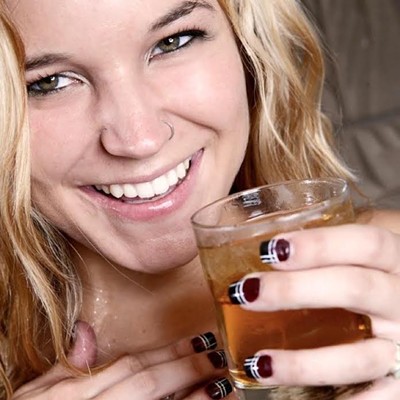Depending on whom you ask, the sound of reggae is either one of spiritual enlightenment or the soundtrack to an awesome kegger. Rastafari might consider the music sacred, but frat boys and sorority girls nationwide simply want to party to it.
The double bill of Matisyahu and The Dirty Heads makes for an interesting side-by-side comparison. Neither makes "traditional reggae," but the combination perfectly illustrates the dual sides of the sound, the spiritual yearning of early roots music and the more laid-back vibes of the modern pop variations on the genre.
On the spiritual side, there's Matthew Paul Miller, better known by his Hebrew stage name Matisyahu. He's explored themes of Jewish identity over hip-hop-influenced beat-boxing and organic reggae sounds. But 2012 has been a year of rebirth for the artist: His latest record, Spark Seeker, charts new territory, exploring pop and rock sounds with grooving results. The record was inspired by a journey through Israel and recorded with Kool Kojak, a noted Brazilian-American producer who's worked with Katy Perry, Flo Rida, Ke$ha, Nicki Minaj, and more.
Though Matisyahu has maintained a connection to his signature sound, the record came with a change in appearance. Near the end of 2011, he shaved his payot (the uncut sideburns and beard that marked him as the foremost Hasidic superstar) and began appearing in public without his yarmulke.
For the songwriter, everything works in cycles. "Every record I put out, it's a new chapter, a different process," he says, his voice so quiet it's difficult to hear him. "The first record I made was in a home studio, the second was live, and the third was made while we were on tour. The fourth record I made in wintertime in New York City, and this last record was mainly made in California with Kool, [and] it was a very enjoyable experience."
As Matisyahu reaches for a religiously spiritual level, The Dirty Heads are more apt to trade in snapshots of everyday life, finding excitement in the mundane. The band's new album, Cabin by the Sea, fuses punk, hip-hop, and reggae, not unlike legendary stoner band Sublime (Matisyahu and The Dirty Heads have both toured with Sublime with Rome).
"[Cabin by the Sea] was an idea that came out of a guitar part that Duddy [guitarist Dustin Bushnell] wrote, a lullaby for his daughter," vocalist Jared Watson, a.k.a Dirty J, says. "We wrote it so you could just hit play and it would transfer you to a different place that people can listen to when they are at the beach, or camping in the mountains."
Though The Dirty Heads have only two albums, the band formed in 1996, building a steady following by endlessly touring. Their 2008 debut, Any Port in Storm, was a hit, and though the band was eager to begin crafting a followup, the lure of the road kept them on the touring circuit. When the band finally got back into the studio, they had a vision for the record, one that was melodic but loose.
"We're in a better place musically, and we've honed our chops," Watson says. "At the same time, it's more about the feel of the music than how good we are. You know, we're really not that good. Like, we couldn't do American Idol. We'd get laughed at. It's like the Black Keys, you know? They've kind of perfected imperfection."
Though neither act creates the kind of dancehall sounds you'd hear blasting out of a Jamaican soundsystem in the early '70s, both represent a take on island music that has lasted for decades, balancing the desire to get down and the desire to get lifted.










